第7章 Letter VI(1)
Have I gone too far in this portraiture of our times?I do not anticipate this stricture,but rather another -that I have proved too much by it.
You will tell me that the picture I have presented resembles the humanity of our day,but it also bodies forth all nations engaged in the same degree of culture,because all,without exception,have fallen off from nature by the abuse of reason,before they can return to it through reason.
But if we bestow some serious attention to the character of our times,we shall be astonished at the contrast between the present and the previous form of humanity,especially that of Greece.We are justified in claiming the reputation of culture and refinement,when contrasted with a purely natural state of society,but not so comparing ourselves with the Grecian nature.For the latter was combined with all the charms of art and with all the dignity of wisdom,without,however,as with us,becoming a victim to these influences.The Greeks put us to shame not only by their simplicity,which is foreign to our age;they are at the same time our rivals,nay,frequently our models,in those very points of superiority from which we seek comfort when regretting the unnatural character of our manners.We see that remarkable people uniting at once fulness of form and fulness of substance,both philosophising and creating,both tender and energetic,uniting a youthful fancy to the virility of reason in a glorious humanity.
At the period of Greek culture,which was an awakening of the powers of the mind,the senses and the spiria had no distinctly separated property;no division had yet torn them asunder,leading them to partition in a hostile attitude,and to mark off their limits with precision.Poetry had not yet become the adversary of wit,nor had speculation abused itself by passing into quibbling.In cases of necessity both poetry and wit could exchange parts,because they both honoured truth only in their special way.However high might be the flight of reason,it drew matter in a loving spirit after it,and,while sharply and stiffly defining it,never mutilated what it touched.It is true the Greek mind displaced humanity,and recast it on a magnified scale in the glorious circle of its gods;but it did this not by dissecting human nature,but by giving it fresh combinations,for the whole of human nature was represented in each of the gods.How different is the course followed by us moderns!We also displace and magnify individuals to form the image of the species,but we do this in a fragmentary way,not by altered combinations,so that it is necessary to gather up from different individuals the elements that form the species in its totality.
It would almost appear as if the powers of mind express themselves with us in real life or empirically as separately as the psychologist distinguishes them in the representation.For we see not only individual subjects,but whole classes of men,uphold their capacities only in part,while the rest of their faculties scarcely show a germ of activity,as in the case of the stunted growth of plants.
I do not overlook the advantages to which the present race,regarded as a unity and in the balance of the understanding,may lay claim over what is best in the ancient world;but it is obliged to engage in the contest as a compact mass,and measure itself as a whole against a whole.Who among the moderns could step forth,man against man,and strive with an Athenian for the prize of higher humanity?
Whence comes this disadvantageous relation of individuals coupled with great advantages of the race?Why could the individual Greek be qualified as the type of his time?and why can no modern dare to offer himself as such?Because all-uniting nature imparted its forms to the Greek,and an all-dividing understanding gives our forms to us.
It was culture itself that gave these wounds to modern humanity.The inner union of human nature was broken,and a destructive contest divided its harmonious forces directly;on the one hand,an enlarged experience and a more distinct thinking necessitated a sharper separation of the sciences,while on the other hand,the more complicated machinery of states necessitated a stricter sundering of ranks and occupations.Intuitive and speculative understanding took up a hostile attitude in opposite fields,whose borders were guarded with jealousy and distrust;and by limiting its operation to a narrow sphere,men have made unto themselves a master who is wont not unfrequently to end by subduing and oppressing all the other faculties.
Whilst on the one hand a luxuriant imagination creates ravages in the plantations that have cost the intelligence so much labour,on the other hand a spirit of abstraction suffocates the fire that might have warmed the heart and inflamed the imagination.
This subversion,commenced by art and learning in the inner man,was carried out to fullness and finished by the spirit of innovation in government.